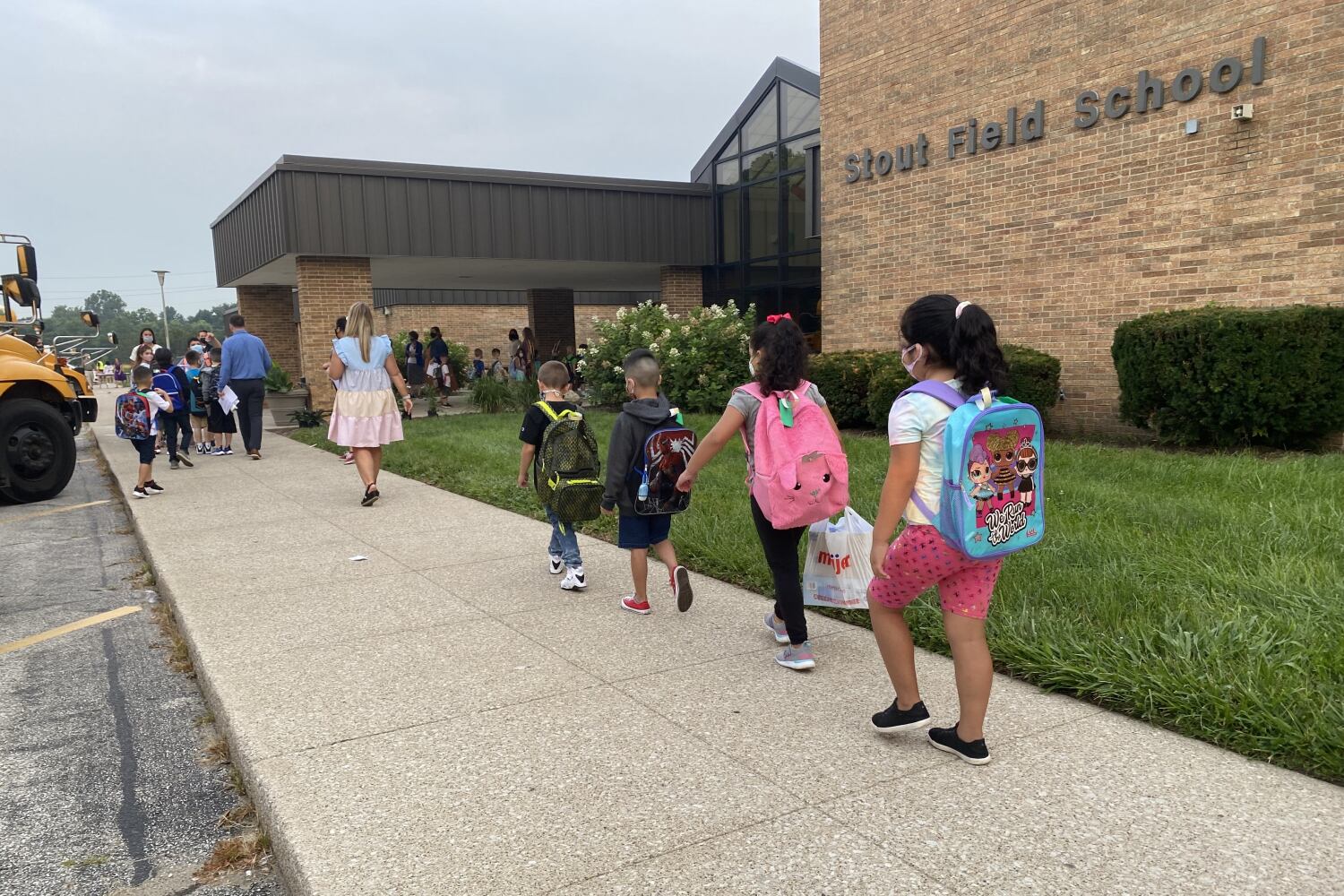Sign up for Chalkbeat Indiana’s free daily newsletter to keep up with Indianapolis Public Schools, Marion County’s township districts, and statewide education news.
This voter guide was co-published by Chalkbeat Indiana, Mirror Indy and WFYI as part of a partnership to increase coverage of township school districts in Marion County and cover the 2024 school board elections.
Four candidates are vying for three seats on the Metropolitan School District of Wayne Township School Board. The district enrolls nearly 16,000 students and is located on the west side of Marion County.
The student population of the district is 38 percent Black, 32 percent Hispanic, and 23.5 percent White. Nearly 70 percent of students qualify for free or reduced-price lunch, a common metric for measuring the population of students from low-income backgrounds. English is not the native language for almost a quarter of all students.
As of 2023, the graduation rate for Ben Davis High School was nearly 85 percent. But the graduation rate for students who did not require a waiver to earn a diploma was 55 percent. Waivers can be used if a student does not meet graduation requirements but otherwise demonstrate the knowledge. In the last several years, state leaders have raised concern about whether waiver diplomas ensure post-secondary readiness.
The district is seen as a leader in offering a variety of coursework options and dual credit opportunities through early college programs, like Ben Davis University High School and the Area 31 Career Center. Teachers in Wayne Township schools have the highest starting salary of all districts in Marion County, with a minimum of $52,500.
Superintendent Jeffrey Butts has led the district since 2011.
This election
There are three at-large seats on the ballot this November and four candidates in the running. Susan Graves is the only incumbent seeking reelection.
Wayne Township Schools board members serve a four-year term.
Who votes and how to vote
All voters within the Wayne Township school district can cast a ballot for all of the races.
Voter registration is open until Monday, Oct. 7. To register to vote or to check your status, go here.
Early voting begins on Oct. 8 at the Indianapolis City-County Building at 200 E. Market St. Additional early voting sites can be found online.
On Election Day on Nov. 5, Marion County residents can vote at any of the county’s voting centers, which can be found online.
Meet the candidates
At-large
Susan Graves (incumbent)
Susan Graves, 60, is a retired teacher running for reelection to the board. Her child graduated from Ben Davis University High School. She has a B.S. from IU Indianapolis in elementary education and a master’s in curriculum, instruction, and assessment from Walden University.
Graves says she sees the people in the district being the biggest strength, and the school’s staff is committed to the growth of the students.
She is concerned about district funding, but believes the limited resources are being used wisely.
“Our leadership in the district does a phenomenal job in assuring that we have what we need given the property tax caps, underfunding of our most complex students, and monies to operate the buildings,” Graves said. “I am grateful for the increases that we have seen over the years.”
Karen Burke
Karen Burke has been on the board since 2021 and is running for reelection. She is a retired Revenue Cycle Manager at St. Vincent Hospital, the owner of Graceful Touch Homecare, and is on the Wayne Township Fire Department Merit Commission. All three of her children attended schools in the district.
Burke is running for re-election to continue commitment to high-quality education, student safety, and responsible management of district resources. She values the sense of community in the district, and believes some of the biggest challenges the district faces are funding shortages, teacher retention, equity gaps, and school safety.
Walter Miller
Walter Miller did not respond to calls from WFYI.
Cheri O’Day Marcotte
Cheri O’Day Marcotte, 61, has worked in public education for 35 years and spent 24 years as a building and district administrator at Wayne Township schools. Before retiring in 2021, she was a Wayne assistant superintendent for nine years. She has multiple education related degrees including the advanced EdS, or educational specialist degree, from Indiana State University.
O’Day Marcotte describes herself as a “life-time westsider” who wants to bring experience, commitment and impact to the board.”I want to focus on whatever is brought forward to the board,” she said. “I don’t have an agenda at all.”
She said the district’s multicultural student body is a major strength. The biggest challenges are student achievement and ensuring everyone, including staff, feels safe.
WFYI education editor Eric Weddle contributed to this story.
WFYI education reporter Sydney Dauphinais covers Marion County schools. Contact her at sdauphinais@wfyi.org.






